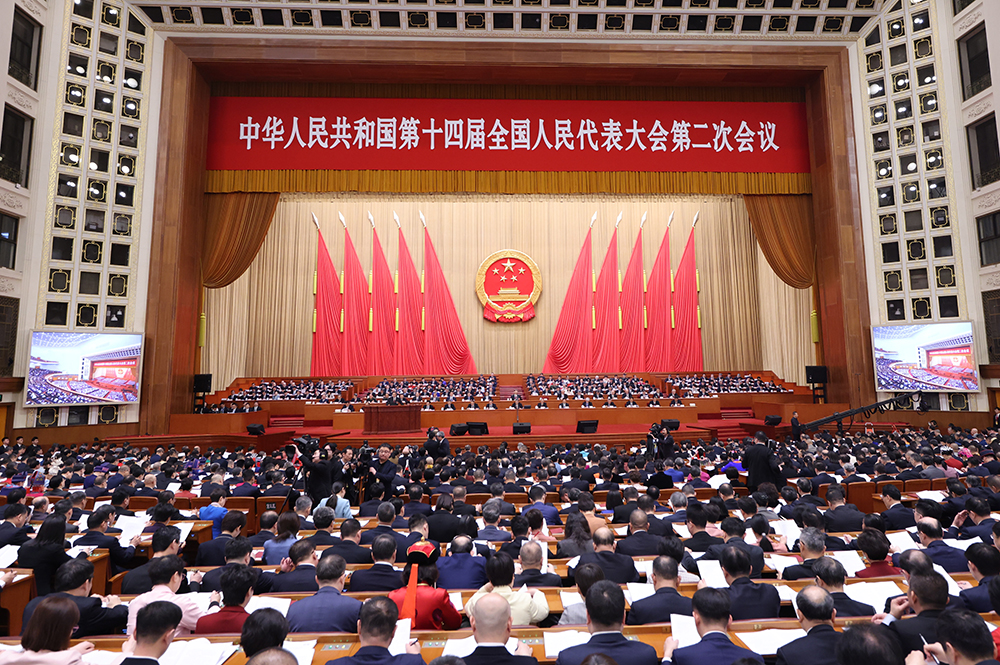International
Economy and Politics: what Chinese premier Li Qiang accounced to National People’s Congress

China’s highest legislative body, the National People’s Congress (NPC), opens its session today. Premier Li Qiang presents his first report on the work of the government, offering a glimpse of the central government’s economic goals and foreign policy, as well as its approach to social issues, Hong Kong affairs, and Taiwan. The speech lasted about an hour.
This year’s meeting comes as concerns about China’s economy intensify after market slides and faltering growth data last year, and many are anticipating economic and political-international announcements.
Here are the key elements of the speech:
Economy: China is targeting GDP growth of “around 5 percent” this year, the same target as last year. It also says China hopes to create more than 12 million new jobs in cities, keeping the urban unemployment rate at 5.5 percent and inflation at 3 percent. In Q4 2023, growth had been 5.2 percent while the country had gone into deflation for the past three months.
Li admits that economic recovery will be difficult after the pandemic and that the external global environment has negatively affected the country’s development.
“Compared to last year, a growth target of about 5 percent is still relatively ambitious, especially considering China’s tepid post-Covida recovery, challenges in the real estate sector, recurring deflation, and weakening business and consumer confidence.
“According to Neil Thomas and Jing Qian of the Centre for China Analysis, this target would signal a tactical focus on resuscitating confidence and spending.
Army and international relationships: Li states that the People’s Liberation Army should “strengthen military training and preparedness in all areas.” He also announced that the country’s military budget will increase by 7.2 percent and be set at 1.66 trillion yuan ($231.4 billion). In the absence of inflation, this is a significant increase.
The president also promises to create a stable, transparent, and predictable policy environment for businesses and to emphasize “communication with the market.” He also pledges to reduce risks and offer more support to the housing market.
There is a commitment to issue very long-term special treasury bonds, starting with an issue of 1 trillion yuan this year. This is 128 billion euros, not tied to wacky policies like the various European funds.
Li said China is committed to an independent foreign policy of peace, the path of peaceful development, and a win-win strategy of opening up.
Taiwan, Hong Kong and Macau As for Taiwan, the premier said Beijing will uphold the principle of China’s oneness and vigorously fight separatism and foreign interference. In this, no major changes appear, although, past the elections now, it will be a more stable and foil game. However, there is talk of a peaceful development of relations, which, in any case, will be centered along Party lines, i.e., the prospect of reunification
He said that the principle of “patriots administering Hong Kong” must be firmly applied. He added that Beijing will continue to support the economic development of Hong Kong and Macau and develop the Greater Bay Area. The government will strive for their welfare, always ensuring that “Patriots” are at the helm
Conclusion: Obviously, this is a meeting of the National People’s Congress, thus a legislative body, even a multi-party one, but whose political components are nevertheless closely linked to the CPC. Revolutions were not to be expected, but some changes are there. Both economically and in terms of international policy, there is more empiricism and realism.
Of course, the government is not retreating an inch, at least seemingly, but positions seem to be approached with practicality. Control over Hong Kong and Macau will still remain very tight. Taiwan, past the elections, will probably see some detente.
As for the economy, we will see development more focused on growth in domestic consumption and the middle class, or at least that is my impression…






